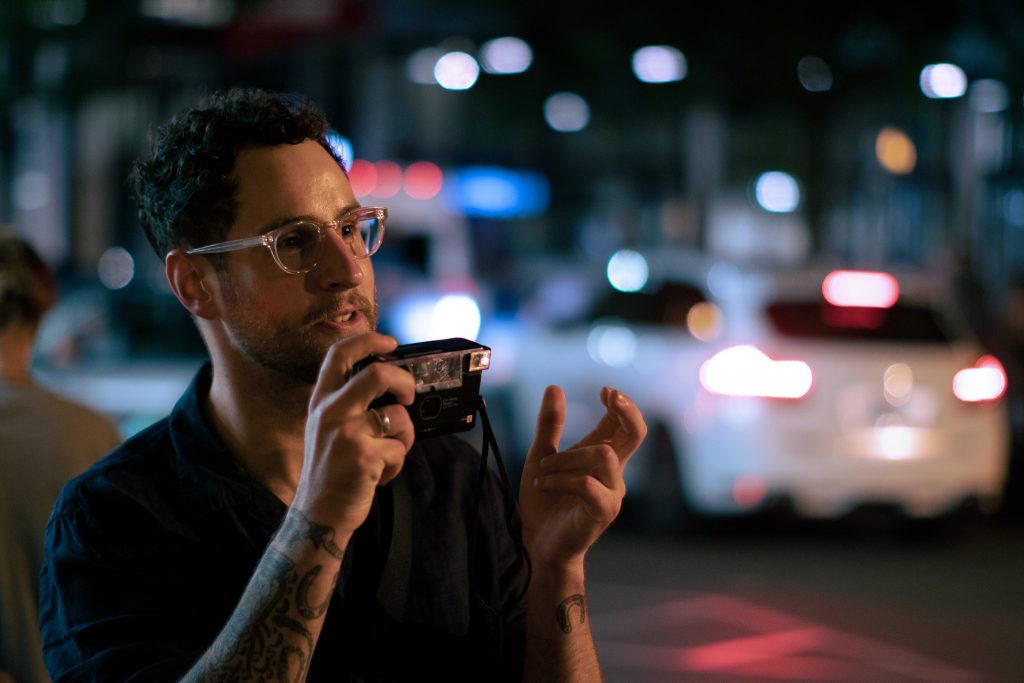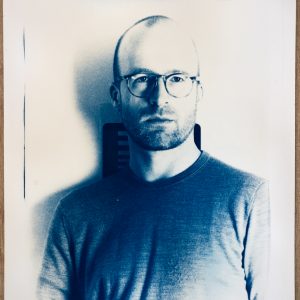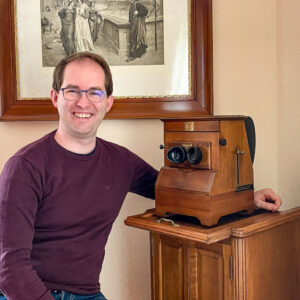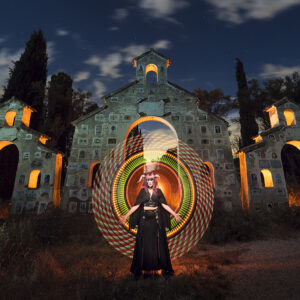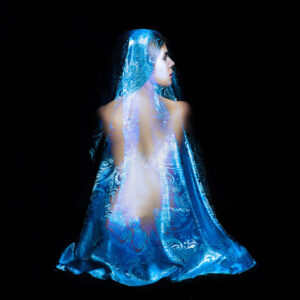Andreas Bodemer is a digital and 35mm film photographer from Seattle, WA, USA.
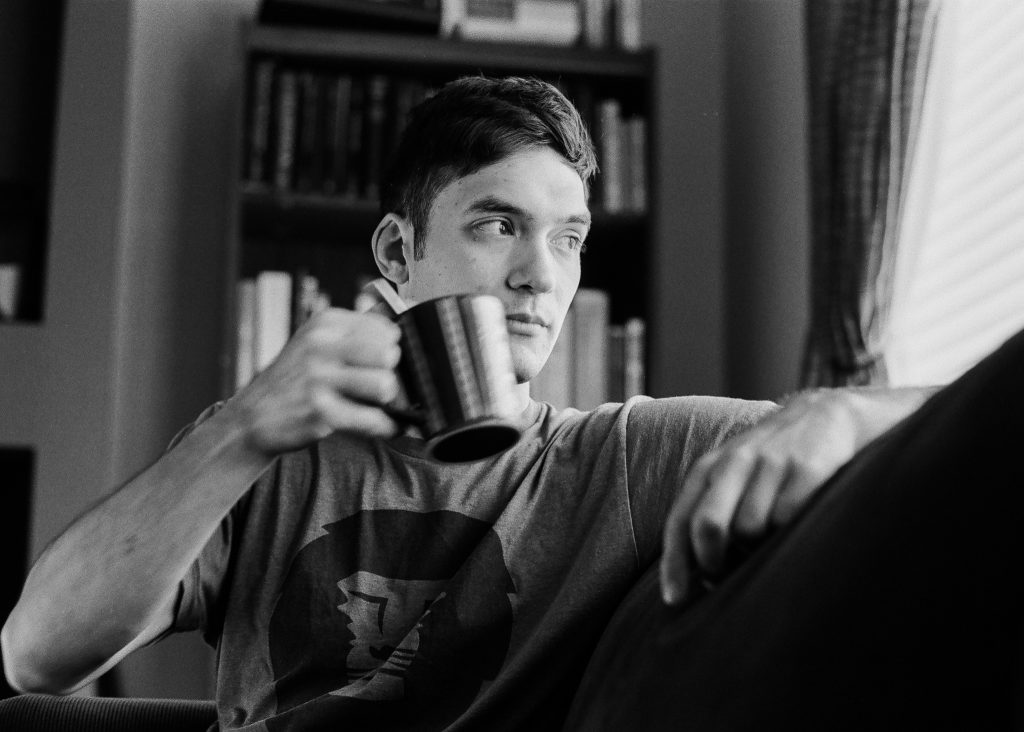
Is there any type of photography that you prefer?
I started with street photography in Seattle during COVID. I took a lot of pictures of sticker slaps (graffiti stickers) for a while. But portrait photography is the most meaningful to me. I used to be very awkward when I was younger. And I found it difficult to connect with people. But now portrait photography is a way for me to connect with people, and the interesting part is that I get to see my personal connection with people through my photos. I feel like I’m capturing our relationship in the picture.
Or maybe, any type of photography that you don’t accept?
I think there is a big temptation to take pictures of beautiful people doing beautiful things, like models on a warm beach. Of course, there is nothing wrong with that; it’s beautiful. But I think that kind of beauty — the beauty of youth and luck — is not as important as deeper, more meaningful aspects of beauty. I prefer an honest portrait session over a shoot with models.
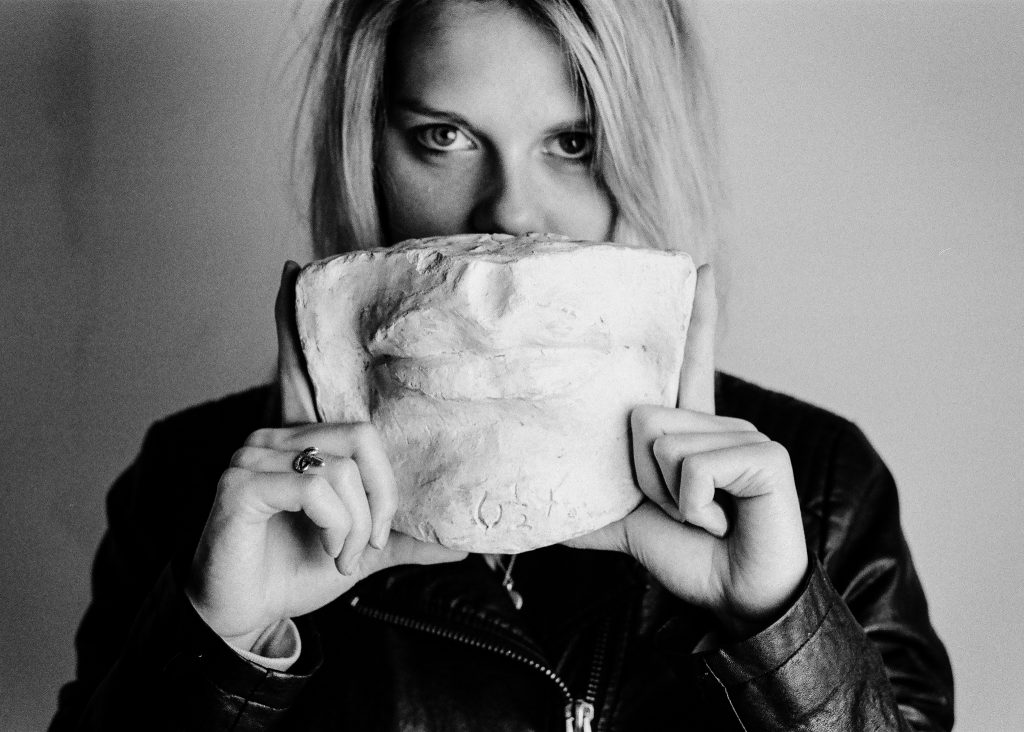
In your Instagram account you declare that you work in digital and 35m photography? Which of them do you prefer?
Film is magical. Digital is practical. Film is also expensive, which is why you might occasionally see the hashtag #shootfilmstaybroke. My friend recently bought an early Canon EOS film camera body for the price of what it takes me to buy a 36-count roll of Portra 400, have it developed, and scanned. But I think it’s worth it. First, it develops discipline in the shooter because each shot is a real investment. But, most important to me, there is something special about analog film.
Analog film is very literally a light-painting, a stabilized chemical reaction in the shape of an image. And each different film stock (Kodak Gold, Fuji Velvia, or CinteStill, for example) renders an image differently, in a much similar way that different instagram filter changes the qualities (color/saturation/black-point/etc.) In my experience, Fujifilm is good for nature, for blues and greens, and for light skin tones. Kodak does yellows and oranges well. Kodak Portra is so good for portraits that people have been making memes about how it is always being overused. And Kodak Ultramax 400 is on the cheaper end, but I love it because it adds a nice amount of saturation. Whereas digital is much more true to life unless you apply a filter after the fact.
I’ll bring my film cameras with me when I go drinking with friends because there is less pressure when there is a film camera. It’s fun. And, for some reason, there is less of an expectation; I suppose that’s because 35mm film is somewhat of a novelty. But I use my digital camera to perfect my craft. That’s where the work happens.
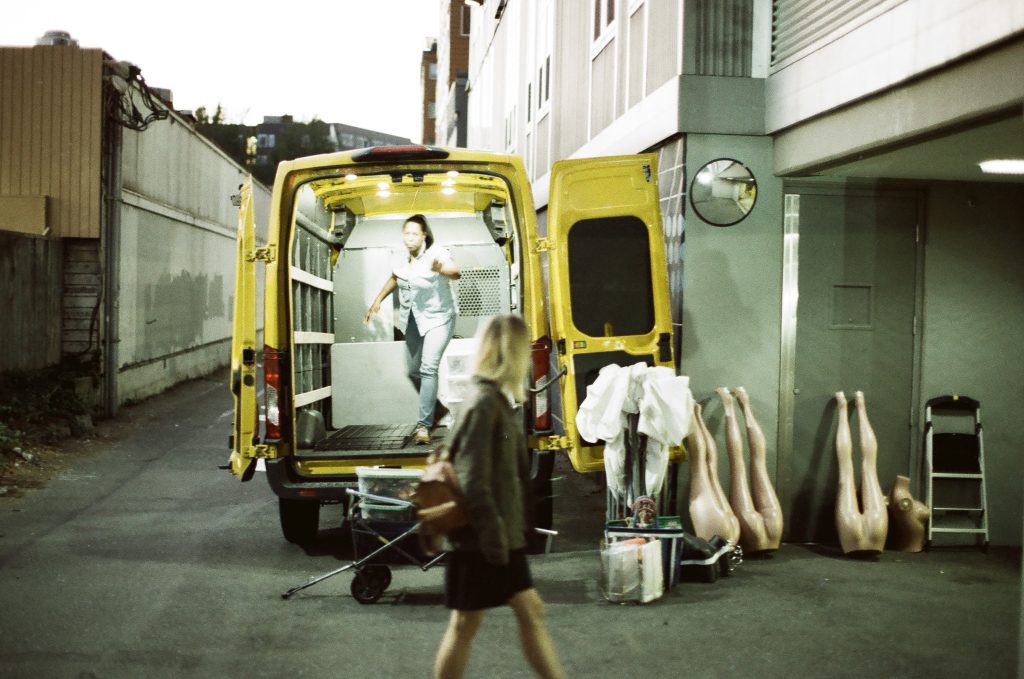
What is really important in photography for you?
Capturing memories and creating stories to reflect on in the future are important to me. I wish I had more pictures of my parents and my older family when they were younger. So, what is important to me is capturing people in their homes and familiar spaces.
Could you tell us about your favorite tricks?
People try very hard to smile because they want to look beautiful and friendly. But I have had the best luck when I am able to get my subject to relax. I tell them to relax his or her face. Once their face is relaxed, I can tell a story and their emotional reaction will subtly and honestly appear on their face, hopefully anyway.
Do people always relax their face when you say them to do it? For example, I’m not sure that I can easily do it…
Actually, the trick is more subtle than I originally said. The goal is to help the subject relax even though there is a giant lens pointed at their face. Cameras make people self conscious and uncomfortable. This process begins before the camera comes out of my bag. I am beginning to learn that my mood and my feelings affect the person that I am shooting. So, the first step is for me to relax. The better I can connect with the person, the better the shoot goes.
If they don’t relax their face, I make sure we have a good time. I try to talk about something they’re interested in, or I tell them something honest and embarrassing about myself. I recently told one of my subjects about how my previous session went horribly wrong. She found that funny.
After that our session went a lot better.
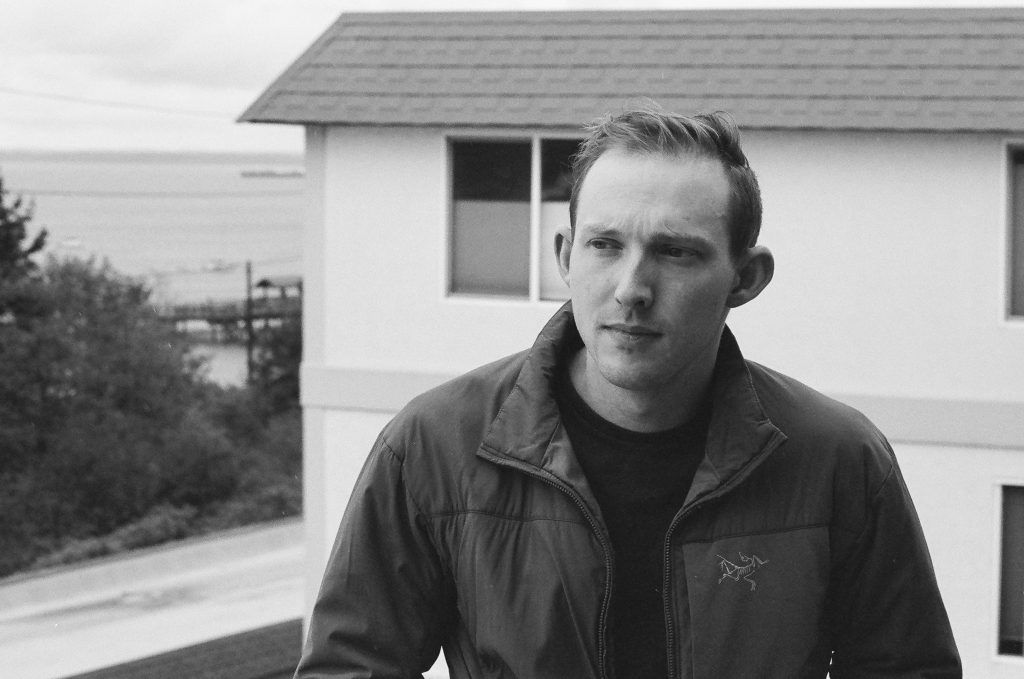
I think, there are some photographers who inspire you. Can you tell us about these people?
Right now, I am reading Chris Orwig’s book, Authentic Portraits. I think he is going to be a big influence on me in the coming weeks and months. Otherwise, when I first started shooting, I was impacted by Daido Moriyama. I was overthinking each shot, and I felt bad about not having better gear. But once I saw his method of street photography, I felt a lot more confident. He would run around Tokyo with a point-and-shoot camera, snapping pictures without really spending much time setting up shots, but his pictures have a real artistic quality. That really helped me get started.
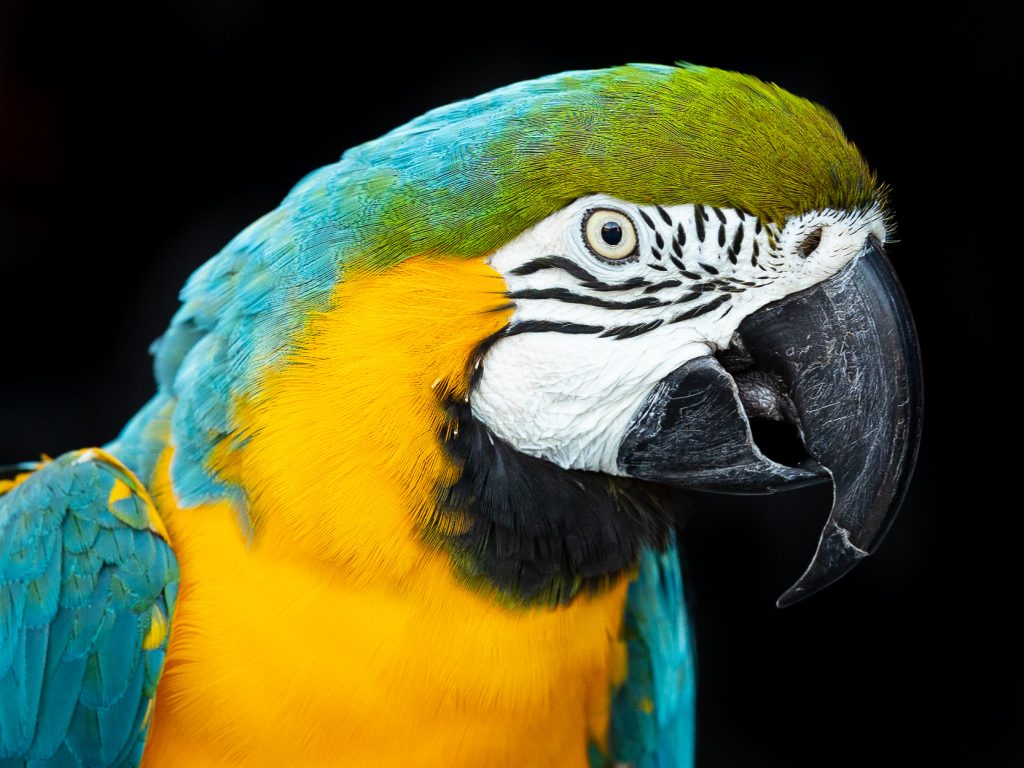
Do you participate in any exhibitions or contests?
A few of my 35mm prints are hanging behind a bar or two in seattle. And I’ve entered a few contests. But I have not yet won any competitions. I only got serious about photography over the past.
Do you earn money via photography or is it just a hobby?
I’ve shot a few paid gigs. But my equipment hasn’t really been good enough to do any serious work. But that’s about to change. I’m actually going to sell my motorcycle, a 2016 Triumph Bonneville T100, later this week so I can buy better photography gear. It’s kind of sad, but I feel the need to focus on a craft.
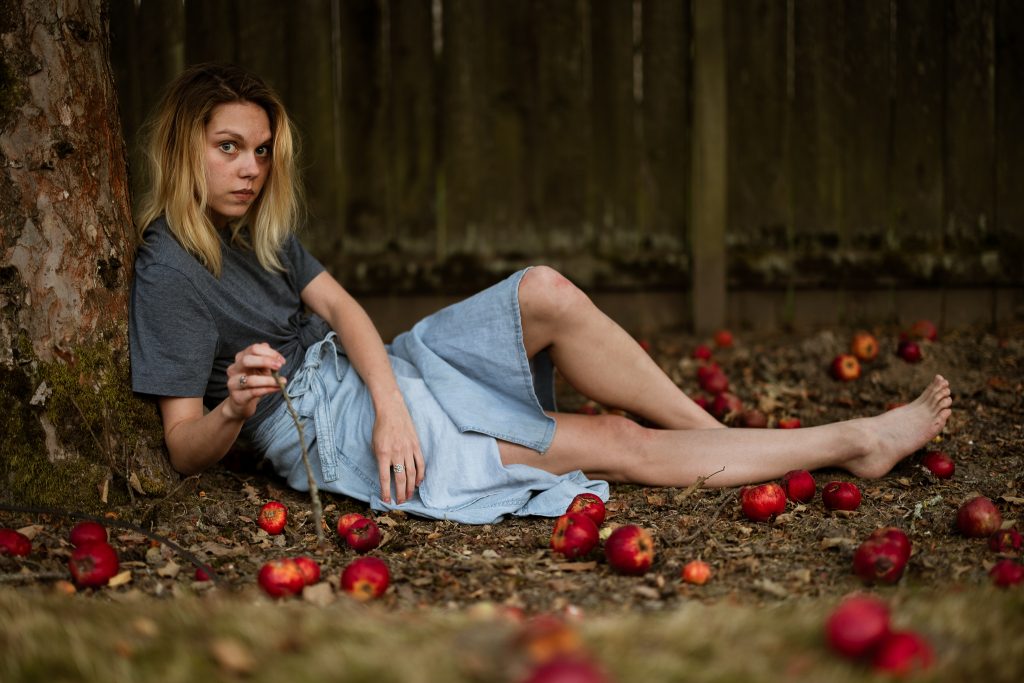
The link in your Instagram account leads to the blog with stories. What type of stories did you write?
My website is still mostly under construction. I just moved from a Blogger site. I started a personal blog during COVID. The blog is a combination of events that happen in my personal life and my thoughts on big ideas. I studied philosophy and political science during my time in college. I uploaded one other story as well. It’s a short story based in my small hometown.
Could you give an example of a title or a concrete topic of a story from your blog to make it more clear for our readers what it was about? Or, maybe, retell us briefly one of them
Well, my blog is unorganized sort of all over the place and my website is still a work in progress, which I am hoping to have in good order by the end of 2021. If you’re curious, just head there: www.curiousredthread.com. If you’re interested in my writing, you can check out my short story called Past Horizon. It’s about a girl who follows a boy on a long walk into the desert. It takes place in my hometown, which is a small city just outside the city limits of El Paso, Texas.
As I understand, the blog is not active now. Why?
I’m in an in-between period right now. And I’m working serious overtime at my day job. I stopped writing because I felt stuck. I was writing a personal blog which my friends liked. And I think I had a few articles which were quite good. But I want a bigger audience. So, I’m trying to figure out what stories people want to read. I intend to pick up writing regularly in the future because it’s such a big part of who I am and how I process my thoughts and emotions.
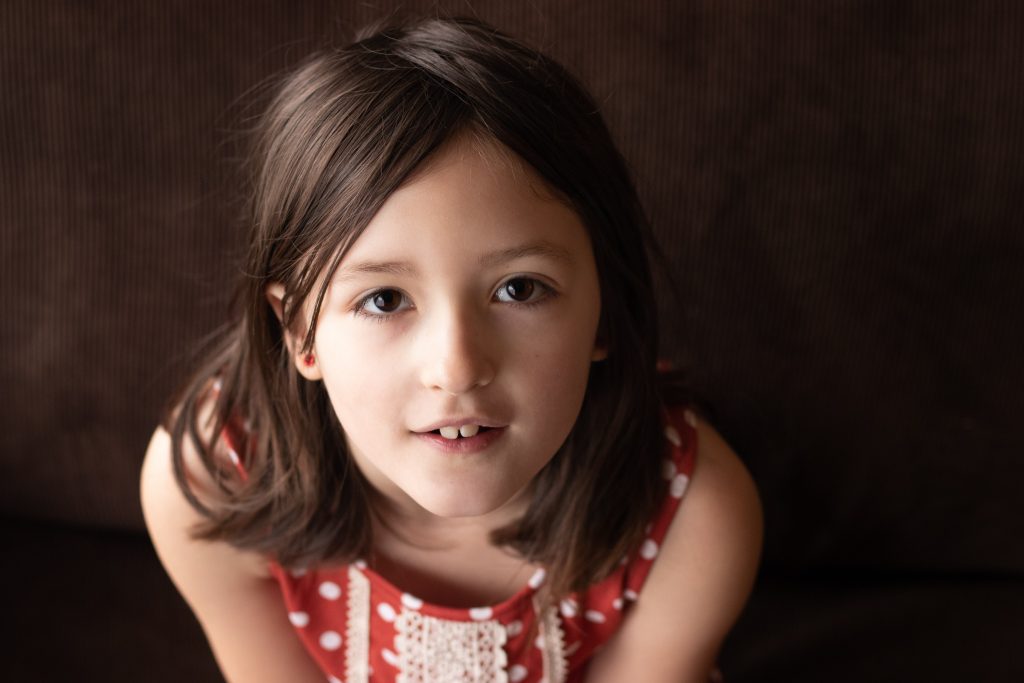
Is there any relation between your stories and your photography?
One of my ideas is to begin to merge my photography and my writing. An interesting photo can really help make a blog post a lot better; it sets the tone in a way that I feel I might have underestimated until recently.
I would also like to begin interviewing people to tell their stories, much like we’re doing here. My roommate’s father was visiting from out of town. He’s an older man who lives in a very small, very rural town, driving a tract and he spent time in prison. He had a few interesting stories about seeing ghosts, and UFOs and things like that. I’m really happy with the photos I took of him. I feel like I captured and preserved something real, something like folklore.
Usually I don’t ask what people need my interviews for but… You’ve said that you’d like to begin interviewing people. Is our interview a training for you or a way to expand your audience?
I like to write, which is the main reason why I am here answering these questions. I don’t have an audience, and I’m not really ready for an audience. I think this interview is useful because when we write or when we speak with someone who asks us deep questions, it causes us to think. That thinking is a process which organizes our minds. It’s like a psychotherapy session. I think I’m actually more interested in dialogue rather than a typical interview. I’m also wondering if I could incorporate a two-part portrait session: a picture before our dialogue and after, to see how the person’s mood has transformed as a result of the conversation. I might have to try that some time.
